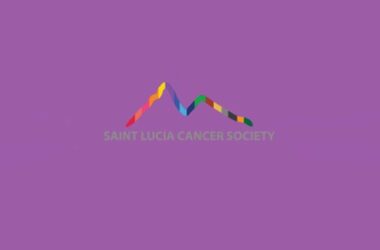
THE early morning fire that affected Soufriere Hospital last week should sound a wake-up call at all of our health facilities. Prompt action by the staff and the fire service allowed for the containment of the fire which was confined to the medical records room. Thankfully, no one was injured, and patients were safely evacuated when the fire broke out.
Ignoring issues of building maintenance, that story merits the admiration and respect of our hospital staff and fire service. Kudos also to the Ministry of Health and Wellness which convened an urgent planning and strategizing meeting to deal with the problem, specifically the prompt closure of the hospital and transfer of patient care to the nearby Etangs Wellness Centre. Reports of collaboration with the police and the Minibus Association are also praiseworthy, particularly the counseling and debriefing support provided to the affected staff.
Surprisingly, the statement by the Medical Officer of Health in the Ministry of Health, which offered all the reassurances noted above, was devoid of reassuring remarks that patient care would continue unaffected at the different location.
Noticeably absent were references to the role of ICT in the provision of healthcare, leaving us to surmise that the fire destroyed the health information contained in the paper-based medical records, visible in the photos of the fire-affected facility. The impact of that fire on the delivery of healthcare should not be overlooked because of the serious consequences and clinical risk arising from the lack of their medical records. Just consider the impact of mistakenly causing an allergic reaction, or worsening a medical complication!
The unfortunate reality is that paper-based records present a double problem. First, they physically trap the information on the paper. Secondly, the paper itself is fuel that may be ignited in a fire, leading to further destruction.
Even if we do not have the full medical history captured electronically, there must be, at a minimum, core elements needed to satisfy patient safety, such as allergy information, current medication, and a brief synopsis of their medical history. Of course, the full computerization of the medical record would be valuable, but is an admittedly costly affair. The challenge, as always, is to regularly back-up all information off-site, which first requires an electronic version of the record being available. Time is not on our side, given the state and vulnerability of our health institutions.
To share your views, contact the author at: www.datashore.net or via The VOICE.
(About the Author: Dr.Lyndell St. Ville is an ICT Consultant based in Saint Lucia, offering expertise in data management, systems design, and policy planning. He spent several years working in the management of health information systems.)



![Simón Bolívar - Liberator of the Americas [Photo credit: Venezuelan Embassy]](https://thevoiceslu.com/wp-content/uploads/2025/12/Simon-Bolivar-feat-2-380x250.jpg)






